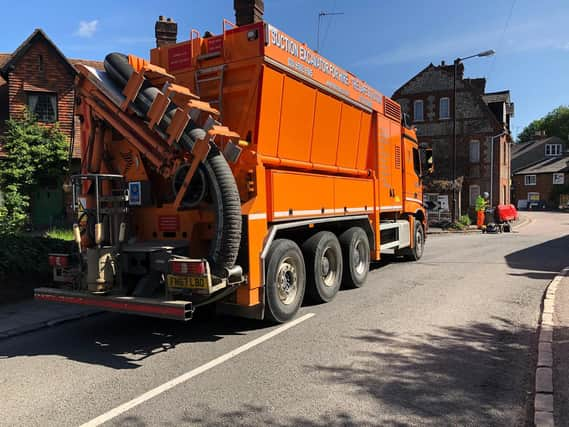Transport for Buckinghamshire trials 'ground breaking' technology


They describe it as an 'exciting' technology that assists excavation work near buried services, reducing the cost of utility diversions by establishing their exact position by safely vacuuming the material around it into a debris tank.
This is becoming a preferred method for keeping crews safe during potentially dangerous work.
Advertisement
Advertisement
TfB recently trialled vacuum excavation at Pednormead End, Chesham, with very successful results. The original plan, based on drawings, required live utilities to be moved, which would have been very expensive and time consuming, however, the vacuum excavator showed that the utilities did not require moving and saved the need for one of the diversions during the project.
The process of vacuum excavation uses compressed air to disturb the ground, safely exposing live utilities, which is then vacuumed into a debris tank.
The more traditional method, that was carried out by diggers and spades, could potentially damage the utilities and would prove to be dangerous when working around electricity and gas lines. Vacuum excavation reduces the chances of site injuries and claims for repairs from third parties.
An example of this ground-breaking technology is the Air-Vac, which provides a more precise excavation using a remote-controlled excavation arm. Once the utilities have been located the Air-Vac uses suction to remove the material from the ground and has been designed to allow the debris to be transported, without the risk of spillages or cross-contamination. Depending on the machine type, the material can then be tipped into a controlled environment for disposal or to be re-used elsewhere.
Advertisement
Advertisement
Vacuum excavators can be used for hard materials such as chalk and concrete in carriageways and footways, however in some areas it may be more difficult to use where the ground is made up of clay as the excavator may have some difficulty trying to break it down.
Buckinghamshire Council Cabinet Member for Transport, Nick Naylor says: ‘It’s exciting that TfB are trying out new and innovative ways to ensure essential works are safer for their crews, all while reducing potential damage to utilities and disruption to the public. Keep up the good work.’